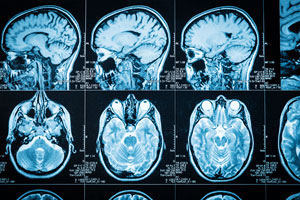The increasing importance of neuroscientists as expert witnesses in death penalty hearings and other court proceedings is highlighted in a recent article in The Atlantic. The article calls attention to a Duke University study of more than 1,600 court decisions that addressed neuroscientific evidence between 2005 and 2012.
According to the Duke study, neuroscientists and related experts testify in about 5 percent of all murder trials and in 1 to 4 percent of all other felony trials. The experts are commonly used to provide mitigating evidence in an attempt to lesson a criminal defendant’s punishment, but neurobiological experts also testify regarding a defendant’s competency to stand trial or to plead guilty, as well as a defendant’s ability to give a voluntary confession when questioned by the police. Less frequently, they testify in support of insanity defenses and defenses based on a defendant’s inability to form the mental status (such as intentional conduct) required to commit the charged crime.
Neurobiology and the Law
The authors of the Duke study grouped neuroscience and behavioral genetics together under the umbrella of neurobiological evidence. The fields of neuroscience and behavioral genetics are increasingly linked as researchers discover that neither a purely genetic nor a purely neuroscientific approach are adequate to explain the biological components of human behavior. In fact, understanding the “pathways between gene, brain, and behavior” may require an interdisciplinary approach that “requires expertise in genetics, neuroscience, psychology, and psychiatry.”
Criminal defense lawyers are turning to neurobiological evidence to explain a client’s criminal behavior. One example links a gene known as MAOA (Monoamine Oxidase A) with antisocial behavior. The gist of the defense is that a criminal defendant should not be held responsible for behavior that results from biology rather than choice. Experts assist lawyers in presenting that defense through MAOA genotyping and neuroimaging.
The use of neurobiology in criminal defense has sparked debate among experts and non-experts alike. If people are truly not responsible for criminal behavior, why should they be punished for their conduct? Neurobiology arguably undermines the retributive foundation for the criminal justice system.
At the same time, prosecutors have used neurobiology to argue that the safety of society requires that criminals who have a genetic or neurologic propensity to behave violently should receive longer sentences. They have contended that the need to protect society trumps the question of personal responsibility for lawless behavior.
Debating Free Will
The debate about the role that neuroscience should play in criminal law falls within a larger scholarly debate about whether free will actually exists. Many neuroscientists conclude from experimental data that the subjective sense of free will is an illusion. They argue that behavior is determined by physical and biological laws, not by individual choice. If that is true, the deterrent value of criminal punishments may be nonexistent.
Scientific evidence notwithstanding, those conclusions are unpopular with a large majority of people who prefer to believe that they make rational or moral decisions about how to behave. The deterministic approach of neuroscience arguably undermines not only criminal law, but moral codes and a good bit of philosophy since the age of Aristotle. If people should not be held responsible for behavior that is not the product of free will, doesn’t that give bad people (or even good people) an excuse to misbehave?
The Future of Expert Testimony
While the authors of the Duke study found that attempts to introduce neurobiological testimony in criminal trials have been relatively unsuccessful, the study also found that attempts to introduce expert neurobiological evidence have been “more successful than most scholars believe.” At least with regard to some claims that criminal defendants raise, “testimony by an expert on the matter may serve as powerful evidence that impacts the outcome of the case for the defendant.”
While neurobiological evidence is used in the sentencing phase of capital cases, it is more often introduced to mitigate punishment in serious felonies that do not involve the death penalty. Since sentencing hearings take place after guilt has been determined, the rules of evidence governing the admission of expert testimony are often more relaxed than those that govern evidence during the guilt phase of a trial.
More controversial is whether to allow expert neurobiological testimony in an effort to persuade a jury that a defendant did not commit the charged offense. When, for example, a crime requires proof that a defendant acted intentionally, a neurobiologist might conclude that the defendant was incapable of forming the specific criminal intent that the law requires. To the extent that experts are allowed to render such opinions, juries commonly reject them.
Still, expert testimony from neuroscientists can make a difference. The Duke study, which defined neurobiological evidence broadly to include not just brain scan results and biomarker examinations but also the results of neuropsychological testing, found that the evidence makes a difference in 20 to 30 percent of cases in which it is admitted.
Measuring the impact of neuroscientific evidence is nevertheless difficult. A jury that acquits a defendant or decides not to impose the death penalty may have done so even in the absence of the expert evidence. Appellate courts have reversed convictions and remanded for new hearings or trials because neuroscientific evidence was improperly excluded (or because the defense attorney failed to present it), but the result after the new trial or hearing may turn out to be the same.
Given the gaps in knowledge about the connection between the brain, genetics, and criminal behavior, not all neuroscientists agree that expert neurobiological evidence should play a role in the courtroom. Notwithstanding that controversy, as scientific analysis becomes increasingly sophisticated, experts in neuroscience are likely to play a larger role as witnesses in criminal trials.




